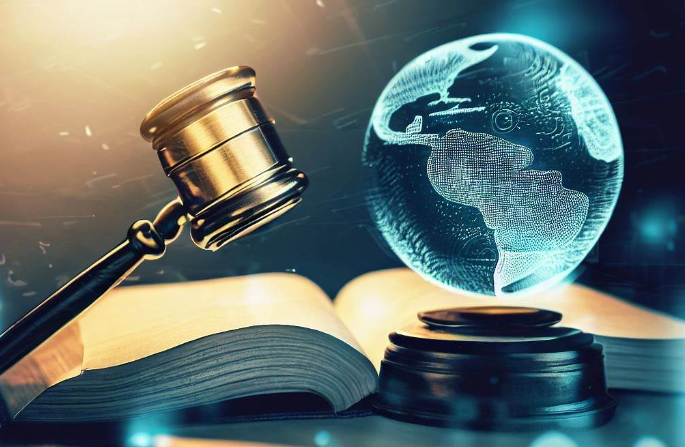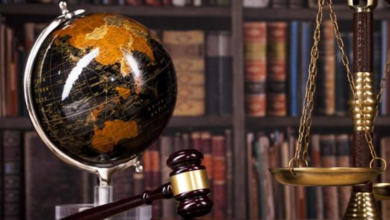Were Nuremerg Laws Against Jews Against International Law

The Nuremberg Laws represent a dark chapter in history, one that reshaped the lives of countless individuals and communities. Introduced by Nazi Germany in 1935, these laws were designed to institutionalize racial discrimination against Jews. But what does this mean for our understanding of law on an international scale? Were these discriminatory measures merely a reflection of national policy, or did they violate fundamental principles recognized globally? As we delve into this complex issue, it becomes crucial to explore not only the intent behind the Nuremberg Laws but also their implications and lasting repercussions. Join us as we navigate through historical context, legal frameworks, and human rights violations associated with these infamous laws.
The Purpose and Implementation of the Nuremberg Laws
The Nuremberg Laws, enacted in 1935, aimed to institutionalize racial discrimination against Jews in Nazi Germany. Their primary purpose was to define who qualified as a Jew and strip them of German citizenship. By categorizing individuals based on ancestry, these laws created a legal framework for widespread persecution.
Implementation began swiftly. The regime enforced the laws through various means, including public humiliation and violence. Jewish people faced restrictions in employment, education, and social interactions.
Propaganda played a significant role in the acceptance of these measures. The Nazis promoted an ideology that depicted Jews as threats to society while glorifying Aryan supremacy.
As enforcement escalated, many found themselves isolated from their communities. Fear permeated everyday life as families struggled with the consequences of being labeled under these oppressive regulations.
Comparison to International Law
The Nuremberg Laws, enacted in 1935, marked a significant departure from existing international norms. These laws institutionalized racial discrimination against Jews, stripping them of citizenship and basic rights.
In contrast to principles outlined in various human rights charters, such as the Universal Declaration of Human Rights created post-World War II, these laws directly violated fundamental tenets like equality before the law and non-discrimination.
International law emphasizes individual dignity and respect for all people. The Nuremberg Laws stood in stark opposition to these values, legitimizing persecution under a guise of legality. They highlighted a dark chapter where laws became tools for oppression rather than guardians of justice.
While international frameworks strive to protect human rights universally, the implementation of the Nuremberg Laws illustrates how legal mechanisms can be manipulated to serve agendas rooted in hatred and exclusion. This raises critical questions about accountability within national jurisdictions versus global standards.
Criticisms and Violations of Human Rights
The Nuremberg Laws faced intense criticism for their blatant discrimination against Jews. These laws stripped Jewish individuals of their citizenship and fundamental rights. This legal framework institutionalized anti-Semitism, creating a climate of fear and persecution.
Human rights advocates have long condemned these measures as violations of basic human dignity. By categorizing people based on ethnicity and religion, the Nazis facilitated systemic oppression.
Moreover, these laws set a dangerous precedent in international law. They blurred the line between state authority and individual rights. The impact was devastating; countless lives were irrevocably altered or extinguished due to this legal monstrosity.
Critics argue that such legislation undermines the very principles upon which modern human rights are built. The moral outrage surrounding the Nuremberg Laws continues to resonate in discussions about justice and equality today.
Repercussions and Legacy of the Nuremberg Laws
The Nuremberg Laws had far-reaching consequences that extended beyond their initial implementation. They institutionalized anti-Semitism in Nazi Germany, stripping Jews of citizenship and basic rights. This legal framework facilitated widespread discrimination and violence.
As history unfolded, the laws served as a precursor to the Holocaust. The societal acceptance of these laws created an environment where atrocities could occur with minimal resistance. Many innocent lives were lost due to this systematic dehumanization.
In the aftermath, post-war trials aimed to address such injustices sparked debates about legality and morality in governance. These discussions emphasized the need for human rights protections on an international scale.
Today, the legacy of the Nuremberg Laws serves as a cautionary tale against hate-based legislation. It reminds us that laws can be weaponized against vulnerable populations if left unchecked by ethical standards or global accountability mechanisms.
Lessons Learned for Future Legal Systems
The Nuremberg Laws serve as a stark reminder of how legal frameworks can be manipulated to justify discrimination and persecution. Future legal systems must prioritize human rights protections at their core.
Education is essential. Training lawmakers and judges about the dangers of biased legislation can help prevent similar atrocities. Awareness campaigns that highlight historical injustices are crucial for fostering societal understanding.
Moreover, robust international law mechanisms should be established to hold nations accountable when they violate fundamental human rights. This would create an environment where oppressive laws cannot flourish unchecked.
Dialogue between countries can also encourage shared values regarding justice and equality. Collaborative efforts in drafting universal principles may deter governments from enacting harmful policies.
Ensuring that citizens have access to legal recourse against discriminatory practices strengthens democracy and helps protect marginalized communities from future abuses.
Conclusion
The Nuremberg Laws were a pivotal moment in history, marking the systematic discrimination against Jews and establishing a legal framework for their persecution. These laws were not just an affront to Jewish communities but represented a broader violation of fundamental human rights.
Lessons learned from this dark chapter encourage vigilance in protecting human rights today. Legal frameworks must prioritize equality and justice while ensuring that similar injustices are never repeated in any form or guise again.



